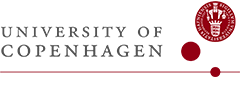Test your knowledge
Writing process, Lesson 2
Congratulations - you have completed Writing process, Lesson 2.
You scored %%SCORE%% out of %%TOTAL%%.
Your performance has been rated as %%RATING%%
Your answers are highlighted below.
Question 1 |
Which is the worst punishment for accidental and intentional plagiarism?
For intentional it is expulsion, for accidental it is a re-exam | |
For intentional it is re-exam, for accidental it is an expulsion | |
For both it is re-exam | |
For both it is expulsion |
Question 2 |
In a citation, can you just omit part of the quote?
Yes, as long as the words you write are precise | |
Yes, if you write "some words omitted" at the end of the quote | |
Yes, if you write (…) where you omit the words | |
No, you could change the meaning of the quote by omitting words |
Question 3 |
How can you refer to text you have published formerly?
You refer to your own publications like any other published text. | |
You write "(ibid)" after the citation to note that it is from the same author | |
No need to use citation when it is your own words |
Question 4 |
Which information is needed if you refer to an oral conversation with a person?
Name | |
Birthday/CVR number | |
Date | |
Place | |
It is not scientific to refer to a conversation noone else can confirm |
Question 5 |
What can bibliographic software help you with?
Searching literature in several databases at the same time | |
Keep track of your searches | |
Transform papers/reports into a standard format | |
Correct formatting of your report/paper |
Once you are finished, click the button below. Any items you have not completed will be marked incorrect.
There are 5 questions to complete.


